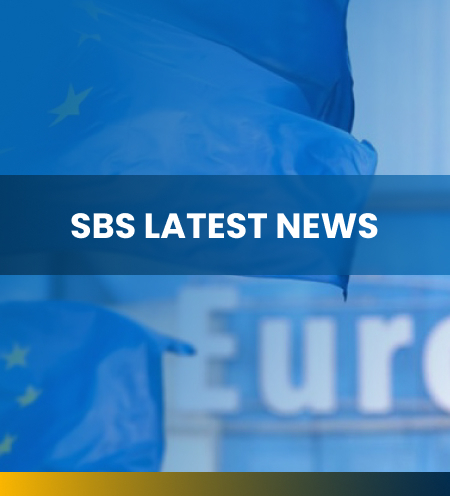The European standardisation system at a crossroads: what role for SBS and European SMEs?
2024 is set to be a pivotal year for European standardisation. During this year, the recently launched evaluation of Regulation 1025/2012, the legislative bedrock of the European standardisation system, will continue and see its conclusion. It will be decided whether a revision of the regulation is necessary. In parallel, the midterm evaluation of the Single Market Programme (SMP), the EU financial instrument which provides the funding for the European standardisation system, will also be carried out. Additionally, The High-Level Forum on European standardisation (HLF) will continue its work and several of its current workstreams will conclude their activities and issue their recommendations. Finally, the new five-year mandate of the European Commission and the European Parliament will also bring new energy and a new set of views to the table
So, how will SBS contribute to this wide range of crucial steps for European standardisation?
With regards to the evaluation of Regulation 1025/2012, SBS has already submitted a joint reply (with EBC and SMEunited) to the initial call for evidence. SBS believes that the regulation is still fit for purpose and that at this time it is not necessary to amend its main provisions. The focus should rather be put on their full and effective implementation.
In particular, the emphasis for a more complete and more effective implementation should be put on articles 5 and 6 of the Regulation, concerning stakeholder participation in European standardisation and access of SMEs to standards both at the European and national levels.
A public consultation on the evaluation is expected to be launched in March. SBS will provide feedback to this consultation and is also set to reply to further announced interviews and consultations and produce a position paper setting out its stance and objectives for the evaluation.
SBS will also maintain its leading role in the HLF workstream on inclusiveness in standardisation at the national level. With the support of CEN-CENELEC, several Member States and representatives from industry and societal stakeholders, SBS has, at the end of 2023, distributed a series of questionnaires (receiving over 200 total replies) to standardisation stakeholders, National standardisation Bodies and Member States to enquire on existing challenges and best practices on inclusiveness in national standardisation and provide a base for recommendations. The results of the questionnaires are currently being analysed and will be presented in a report. The report will provide a basis for discussion during a workshop to be held on 5 June and hosted by the Belgian Federal Ministry of the Economy, the aim of which is to agree on common recommendations to be presented to the High-Level Forum members for final endorsement. The outcomes and recommendations of this work are expected to be ready over the summer, just in time to feed into the evaluation of the Regulation on European standardisation.
On the midterm evaluation of the SMP, SBS has, in its reply to the relative consultation, already reiterated the need to maintain a consistent and robust level of funding for the European standardisation system and the participation of SMEs in standardisation. SBS also participated in an interview with the consultant carrying out the study on the evaluation of the programme on behalf of the European Commission. SBS believes that, despite the overall beneficial effects of the SMP as an instrument, the financing of the European standardisation system and the participation of all relevant stakeholders in the system could be improved. SBS stressed the importance of streamlining the financial and administrative procedures related to access to funding and grants under the SMP.
Finally, SBS will take the opportunity of the new mandates from the European Commission and the European Parliament to draw up, before the summer, a manifesto expressing its views and objectives for the next five years regarding standardisation.
Much work lies ahead, great challenges and opportunities!
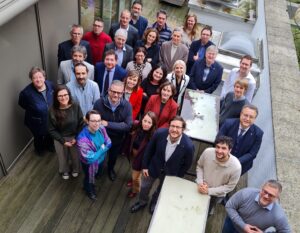
SBS newly appointed experts meet in Brussels
On 19 and 20 February, the newly appointed SBS experts for 2024 met on the SBS premises in Brussels. The first day was dedicated to welcoming the new experts, presenting SBS and the work and responsibilities of the secretariat, as well as providing information on the mission and work of the experts. On the following day, the SBS Secretariat, representatives from the European Commission, CEN, CENELEC and ISO provided updates on the latest standardisation and related policy developments, the outcomes of the Commission, EFTA and European Standards Bodies Task Force on the timely delivery of standards (especially concerning harmonised standards), including the standardisation request for the Digital Product Passport and the product priorities that will be tackled under the new Regulation on Ecodesign for Sustainable Products (ESPR).
In December 2023, the SBS General Assembly appointed 68 experts to represent SME interests in European and international standards committees and working groups in 2024. Experts have been appointed to work in new areas such as biometrics, the Digital Product Passport and the circular economy in the construction sector.

Position papers on recommendations to national and international standardisation bodies
SBS published two new position statements in January with recommendations for reinforcing the role of SMEs and SMEs’ experts in national and international standardisation.
In its “Recommendations for further SME involvement in standardisation at the national level” addressed at National standardisation Bodies (NSBs), SBS lists practical initiatives that could be undertaken to facilitate SME access and ensure SMEs’ interests are represented in standardisation at the national level. Some of the recommendations include the need for NSBs to be more proactive and reach out to SME associations and to provide easily accessible information allowing SMEs to identify relevant standardisation work. These recommendations will be used in the context of meetings between SBS and national standards bodies and as input to the work of the High-Level Forum on the inclusiveness of SMEs and other stakeholders at the national level.
The “Recommendations to boost SMEs’ role in international standardisation” are aimed primarily at ISO and IEC and outline concrete solutions to be implemented at both policy and technical levels to support a stronger role of SMEs in international standardisation work. These measures include the creation of a specific forum within ISO-IEC to tackle SME-related issues, the inclusion of SME representatives as observers in the ISO and IEC Technical Management Boards and favouring the participation of SME experts in ISO and IEC technical bodies by streamlining the so-called “liaison agreement” process to secure access to standardisation work.
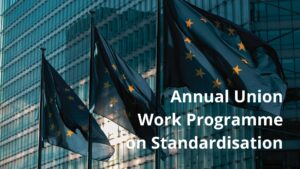
Publication of the 2024 Commission Annual Union Work Programme and consultation for 2025
On 2 February, the European Commission published its Annual Union Work Programme (AUWP) on standardisation for 2024. The Work Programme indicates the topics for which the Commission intends to issue a standardisation request during this year. Among the policy priorities identified in the AUWP are critical raw materials, EU trusted data framework, European Digital Identity framework, cybersecurity and hydrogen technology and components.
SBS is pleased that the final version of the document takes on board the majority of the priorities for action it had identified during the consultation exercise that preceded the development of this programme.
Furthermore, at the beginning of February, the European Commission launched a preliminary consultation of the High-Level Forum on European standardisation members to define the standardisation action areas to be included in the 2025 AUWP. SBS is gathering input from its members and experts to ensure that the needs and priorities of European SMEs will be properly included in the future programme.

Ecodesign close to adoption: advancing the sustainability and repairability of EU products
The Ecodesign for Sustainable Products Regulation (ESPR) is close to formal adoption. Co-legislators found a provisional agreement in December last year and the final plenary vote in the European Parliament is expected to take place in April 2024. The ESPR sets out a framework to establish rules for products on the internal market to improve their circularity, energy performance and other aspects of environmental sustainability. The regulation includes key measures, such as the set-up of the Digital Product Passport, rules on green public procurement and a ban on the destruction of unsold goods. The publication of the regulation in the Official Journal of the European Union is expected in the summer of this year. Successively, the Commission will adopt an ESPR Working Plan in 2025, and then Delegated Acts will set general requirements per specific product and/or product category. In late February, a vote in the Committee of Standards on the draft standardisation request for the Digital Product Passport system has been launched with the deadline set to 1 April.

Construction SMEs relieved by Commission’s authorisation renewal of propiconazole
The European Commission recently announced its decision to renew the authorisation of propiconazole as an active substance for use in biocidal products, in particular those falling under product type 8. This decision is subject to specific conditions set out in Regulation (EU) No 528/2012, which reflect a careful balance between the needs of industry and safety considerations for human and animal health and the environment.
The renewal of propiconazole’s permission is significant, especially for small and medium-sized enterprises in the construction sector, which heavily rely on the substance for various purposes, including the protection of wood against wood-discolouring fungi. The decision to renew the approval until 30/11/2030 provides clarity and stability for businesses operating in this domain.
Wood treated with propiconazole is now restricted to defined uses, primarily centred around protection against wood-discolouring fungi and designated use classes for structural wood and joinery. Moreover, the decision emphasises the need for precautions to reduce leaching and control exposure to propiconazole.
SBS has been working with relevant stakeholders to advocate for the renewal of this substance, as its ban would affect disproportionally SMEs and crafts. Propiconazole is used to a great degree by the woodworking sector, which is primarily comprised of SMEs, to ensure the high quality of its products.
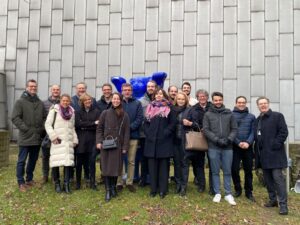
SBS takes part in the kick-off meeting of EDU4Standards
In late January, SBS took part in the launch of EDU4Standards – Empowering standardisation through Education in Europe. This Horizon Europe project seeks to develop and test an innovative teaching methodology for standardisation to expand its integration across institutions and courses, including non-formal and informal learning. Ultimately, EDU4Standards aims to establish a strong community of standardisation educators, students and experts, influencing the future of standards development.
The consortium brings together universities, higher education institutes, standards development organisations and SME representatives. SBS will contribute to the project outputs by supporting the training of SME experts and enhancing the awareness and capacity-building of SMEs and SME association professionals to get actively involved in standardisation.

Plenary of CEN-CENELEC JTC 21 “Artificial Intelligence”: Upholding SME interests in the implementation of the AI Act
On 12 and 14 February, CEN-CENELEC’s JTC21 “Artificial Intelligence” plenary took place in Dublin. The JTC is tasked by the European Commission with the delivery of the European standards that would support the implementation of the Artificial Intelligence Act (AI Act). Participation of SME representatives in the work of the JTC21 is of considerable importance to ensure the standards implemented are easily implementable by SMEs without having to incur excessive compliance costs. SBS is represented by Dr. Emilia Tantar in the Committee, who notably convenes WG2 (Operational Aspects).
With the recent green light given to the AI Act by the Council of the European Union on 2 February, JTC21’s work now enters an even more crucial phase. SBS will continue its active participation in standardisation work both at European and international levels, also in light of the standardisation request that will be issued by the Commission later this year once the legal text of the AI Act is formally adopted and made into EU law.
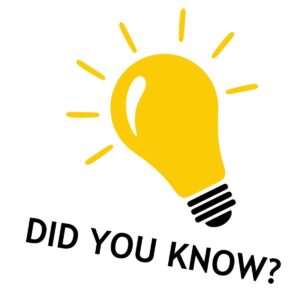
The Frankfurt Agreement
Similar to the Vienna Agreement, which is a cooperation agreement between the European Committee for standardisation (CEN) and the International Organization for standardisation (ISO) (see the previous SBS Newsletter issue), the Frankfurt agreement was signed on 17 October 2016 and is a cooperation agreement between the European Committee for Electrotechnical standardisation (CENELEC) and the International Electrotechnical Commission (IEC). The Frankfurt agreement is based on three main pillars of cooperation:
- Offering CENELEC New Work items for European standards to IEC
- Parallel vote on draft international standards
- Offering European Standards to IEC for possible conversion into an international standard
The main objective of the Frankfurt Agreement is to ensure that resources available for standardisation are optimised. It enables the IEC and CENELEC to exchange information, ensures transparency and avoids duplication of standardisation work.
The agreement underlines the primacy of international standardisation over regional (European) and national standardisation. The agreement has resulted in a close alignment of international and European standards. Close to 80% of CENELEC standards are identical to or based on IEC publications. Further details on the agreement can be found in the CENELEC Guide 13.
- Kick-off meeting CEN-CENELEC JTC 24 on Digital Product Passport
- Commission Implementing Decision (EU) 2024/354 of 19 January 2024 on harmonised standards for cableway installations drafted in support of Regulation (EU) 2016/424 of the European Parliament and the Council
- Commission Implementing Decision (EU) 2024/201 of 10 January 2024 amending Implementing Decision (EU) 2022/1954 as regards harmonised standards for remote mechanical steering systems, permanently installed fuel systems and remote hydraulic steering systems
- SBS Recommendations for further SME involvement in standardisation at the national level
- https://sbs-sme.eu/publication/01-2024-recommendations-to-boost-smes-role-in-international-standardisation/
- SBS reply to Call for Evidence on the Single Market Programme interim evaluation
- SBS position paper on the Green Claims Directive
25-29/11 – Meeting Standards 2nd Edition Launch: Become a partner!




























